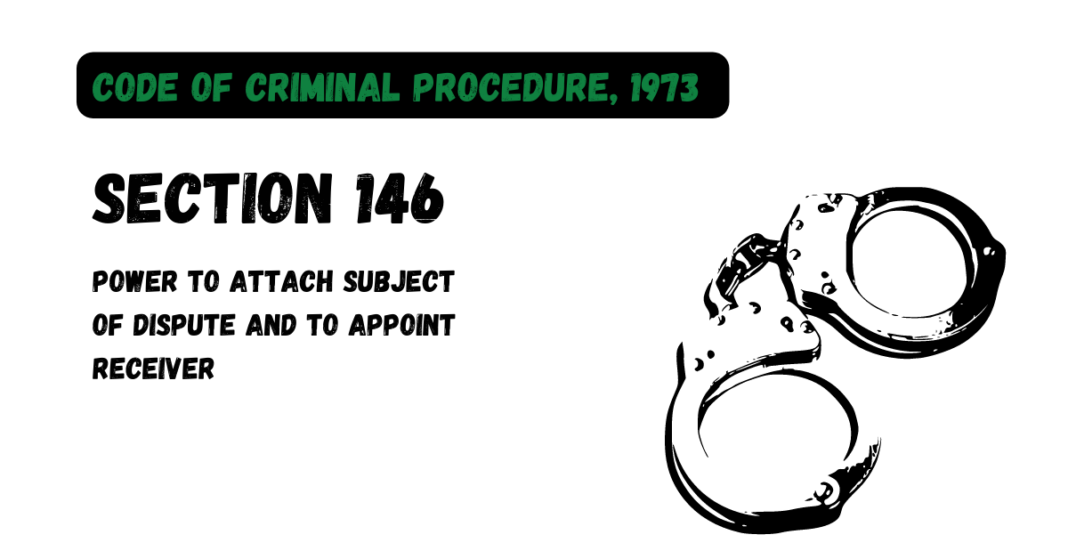(1) If the Magistrate at any time after making the order under sub-section (1) of section 145 considers the case to be one of emergency, or if he decides that none of the parties was then in such possession as is referred to in section 145, or if he is unable to satisfy himself as to which of them was then in such possession of the subject of dispute, he may attach the subject of dispute until a competent Court has determined the rights of the parties thereto with regard to the person entitled to the possession thereof:
Provided that such Magistrate may withdraw the attachment at any time if he is satisfied that there is no longer any likelihood of breach of the peace with regard to the subject of dispute.
(2) When the Magistrate attaches the subject of dispute, he may, if no receiver in relation to such subject of dispute has been appointed by any Civil Court, make such arrangements as he considers proper for looking after the property or if he thinks fit, appoint a receiver thereof, who shall have, subject to the control of the Magistrate, all the powers of a receiver appointed under the Code of Civil Procedure, 1908 (5 of 1908):
Provided that in the event of a receiver being subsequently appointed in relation to the subject of dispute by any Civil Court, the Magistrate— (a) shall order the receiver appointed by him to hand over the possession of the subject of dispute to the receiver appointed by the Civil Court and shall thereafter discharge the receiver appointed by him; (b) may make such other incidental or consequential orders as may be just.





